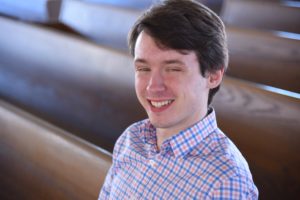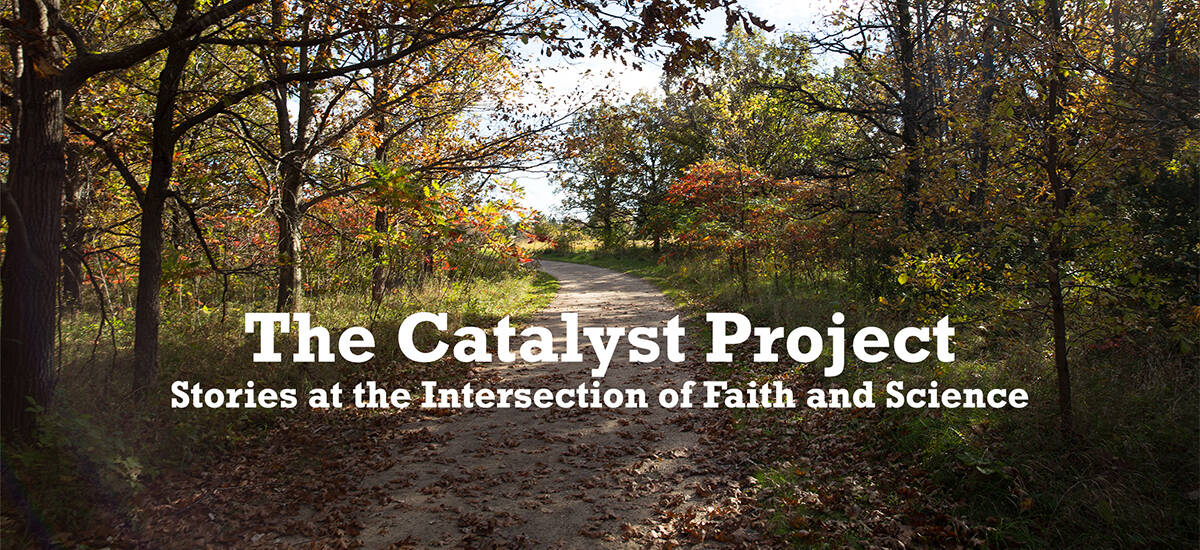
Benjamin Easter’s interest in science is rooted in his inquisitive nature. For example, he would wonder why leaves fall, and found that the answers he searched for were scientific. Benjamin believes that by asking questions he developed a habit of seeking knowledge, and ultimately learning more. Science became a way of “finding this web of cool information about the world”. He believes that “I could live without knowing, but it’s just so interesting”. When thinking about what he hopes to do with his major, Benjamin says that “I would like to combine my interest in videography with science”. He thinks that there’s a commonly held idea that science is very prestigious and difficult, which is actually a reflection of a disconnect between how science is and how science is represented in the media. He believes that “once you sit down with science and have a coffee with it, it’s not such a bad guy”. Benjamin wants to utilize videography to bridge this gap.
Benjamin’s interest in science has been impacted by his talents and by his family. He recounts his mother telling him “I have the eyes of an artist and the mind of a scientist”. He believes he’s analytical and objective, but “the perspective I have allows me to see things under a different light and from a different point of view”. Because of this, he’s able to approach chemistry from a different lense. Benjamin initially wanted to pursue medicine because his father, who he cites as the most influential person in his life, has Parkinson’s. Watching his father gradually lose his independence inspired Benjamin to pursue a career where he could help others maintain it. His initial interest was Optometry, because he believes that losing vision drastically alters independence and because his vision allows him to “consume art”. However, Optometry didn’t turn out to be the right career for him, so “I moved back to what I know and what I wanted to know, which is videography and science”.
A belief that defines Benjamin is “the belief that to truly live is to embrace the entropy of the world”. He says that you have to accept that there’s no way to know all the answers, because “life and time doesn’t move on a linear plane, in the sense that life will always move forward and it will always throw curveballs at you”. You can choose to dwell on what happened, but life will keep moving. Benjamin thinks that “every time humanity thinks they have a definitive answer in science, something unexpected happens”. Instead of waiting around for an answer that may never come, he believes that you have to keep moving forward. An example of this is the issue of climate change, where Benjamin says that we have to find answers as if it’s occurring instead of dwelling on the tiny chance that it might not be.
A scientific issue that intimidates Benjamin in the context of his faith is “if there’s other life”. He says that the Bible doesn’t “really recognize the possibility of extraterrestrial life, or if man is supposed to leave this planet”. Benjamin knows that this isn’t a currently pressing scientific issue, but it is something that he wonders about. There’s no definite answer, and he thinks that a place where his faith and science might collide is “outside of Earth”. Benjamin says that “I don’t think faith scares me” in the context of science. This is because “I don’t think the Bible directly supports all science, but also the Bible has been translated more than thirty times and to interpret it literally, in my opinion, is not conducive to progression”. For him, nothing in the Bible contradicts science.
Benjamin says that “as I pursue my vocation and as I’m exposed to other science students, my beliefs have become more open-minded”. At Gustavus, he’s been exposed to students “who are so openly Christian and who don’t seem to give a second thought about science versus religion”, and he finds this very inspirational. Benjamin was pleasantly surprised to learn when he came to college that other religious students were interested in science, because “I just kind of thought I’d be alone in that regard”. Benjamin believes that “my vocation is centered around making science accessible and breaking the implication that science is a difficult thing to approach and not welcoming”. He connects this with “the welcoming nature of the ELCA”, and says that it’s “I’d like to emulate that Christianity is open to all”. Historically, he doesn’t think that Christianity has always been this welcoming. But Benjamin believes that, like science, “if you sit down and talk to it, it’s not such a bad guy”.
